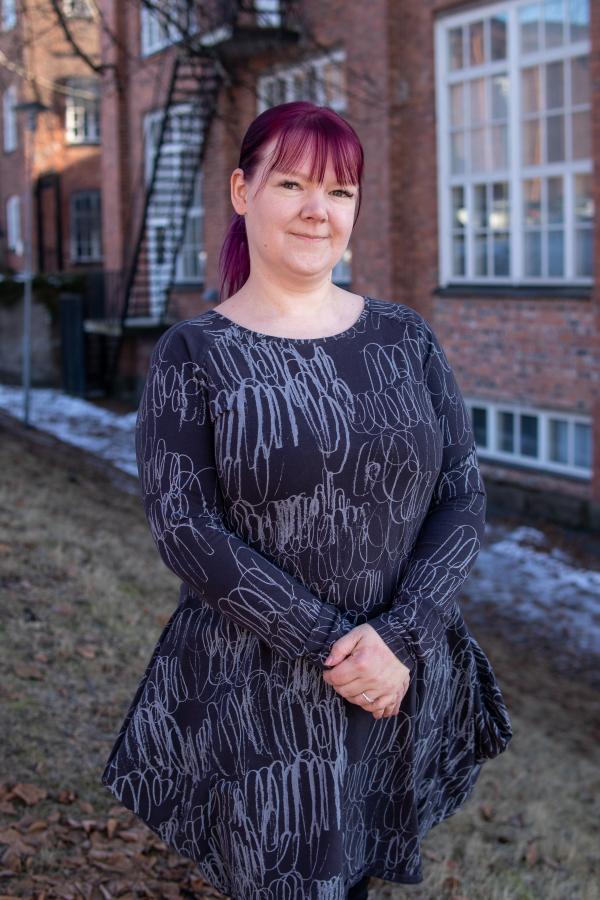Aino Rantamäki' s doctoral dissertation highlights the prerequisites for societal crisis resilience, particularly in relation to the informational dimension of crises.
Recent years have been marked by various crises and exceptional circumstances, such as the Covid 19 pandemic, the war in Ukraine, and the mobilisation of refugees on the Russian border. These crises are not all the same, but regardless of their type, they are all associated with uncertainty. Uncertainty is linked to a lack of information, particularly in the early stages of a crisis, and to the contradictory, unclear and even untruthful nature of information as the crisis progresses.
The lack of information is often responded to by massive information production, which can lead to the loss of information that is essential for action.
– Both incomplete and excessive information have consequences that undermine the capacity of individuals and society to act. It is not appropriate, let alone possible, to strive for perfect information, so instead of producing too much information, it is important to invest in building a common understanding of the situation and improving the usability of information, says Rantamäki, who will defend her dissertation at the University of Vaasa on 22 March.
Crises are not only inevitable, but also necessary. They force us to remain vigilant, maintain preparedness, and develop skills and lessons learned.
Rantamäki stresses that although information resilience is realised during crises, it is built and strengthened in normal circumstances.
– Maintaining trust in society, building skills that are essential for information resilience and enabling foresight that leaves room for application are ways to strengthen the structures that support information resilience, says Rantamäki.
In addition, a common will is needed. Information resilience is built through interaction and cannot be the responsibility of a single actor or agency. This means that we need ways, space, and opportunities for dialogue between different groups of actors. According to Rantamäki, interaction in support of information resilience requires dialogue across sectors, levels, and disciplines, so that a common understanding of the situation can be built and rebuilt.
New results from multi-method research to support information resilience
Rantamäki's doctoral research takes a multi-method approach to information resilience. The study uses not only qualitative conceptual analysis and content analysis, but also network analysis linked to a more quantitative research tradition. The data consists of previous research literature, newspaper articles from the time of the Covid 19 pandemic, networks of stakeholders in the consultations behind the legislation, expert interviews, panels, and workshops.
The dissertation provides new scientific knowledge on information resilience in a governance context and a practical understanding of the means to support information resilience in society. The understanding built up in the dissertation can therefore be used both in future scientific research and in the development of, for example, social preparedness or organisational knowledge management.
Public defence
The public examination of Master of Health Care Aino Rantamäki’s doctoral dissertation “Hallintaa epävarmuudessa – Informaatioresilienssi kriiseissä ja niihin varautumisessa” will be held at the University of Vaasa, lecture hall F118 (Fabriikki building) on Friday 22 March 2024 at 12.
Professor Jari Stenvall (University of Tampere) will act as an opponent and Professor Harri Jalonen as a custos. The defence will be held in Finnish.
Dissertation
Rantamäki, Aino (2024) Hallintaa epävarmuudessa – Informaatioresilienssi kriiseissä ja niihin varautumisessa. Acta Wasaensia 530. Doctoral dissertation. University of Vaasa.
Further information
Aino Rantamäki, tel. +358 29 449 8672
email: aino.rantamaki@uwasa.fi
Aino Rantamäki was born in Tampere in 1986. She graduated from Tampereen yhteiskoulun lukio upper secondary school in 2005 and as a midwife (AMK) from Tampere University of Applied Sciences in 2013. In addition, Rantamäki completed her master's degree in management of health care and social services at Tampere University of Applied Sciences in 2018.
During her career, she has worked as a qualified nurse and assistant head nurse in Pirkanmaa Hospital District and as a doctoral researcher at the University of Vaasa since 2021.

